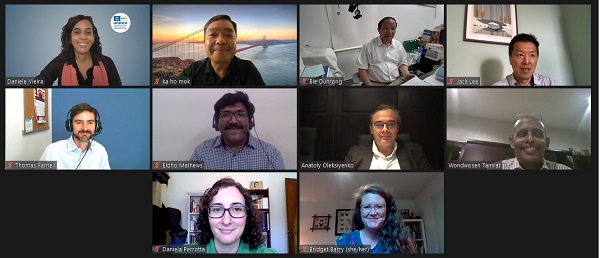New brief on student mental health support in higher education released

In some countries, up to 50% of higher education (HE) students suffer from mental health challenges. For example, about 20% of HE students are suffering from depression, and up to half have some of its symptoms. In addition, 15% HE students have experienced suicidal thoughts and 2-3% having attempted suicide. This share has consistently increased in many countries, and spiked during the Covid-19 pandemic.
In this context of growing mental health awareness, higher education institutions (HEIs) around the world are increasingly recognizing the need for better mental health support services on campus. HEIs’ efforts to create a more inclusive and supportive environment for students are part of their wider contribution to the Sustainable Development Goal (SDG) 3, which promotes good physical and mental health and well-being for all.
Key actions that HEIs are adopting to strengthen student mental health include:
- Providing free mental healthcare. Providing free mental health services on campus. Governments have a responsibility to support HEIs with funding, if not already providing these free services to the general population.
- Diversifying mental healthcare provision modalities. Combining in-person counseling, phone lines and online chat consultations, with special attention to students’ diverse cultural backgrounds.
- Offering 24/7 crisis support: Establishing around-the-clock helplines to address severe mental health crisis, including suicidal ideation or panic attacks.
- Integrating mental healthcare into the broader healthcare system. This can be complemented by mental health screening initiatives and integrating mental health support services with general student affairs offices.
- Training faculty and staff to identify mental health issues: Empowering educators and administrators with the skills needed to recognize early signs of distress and guide students toward appropriate resources.
- Implementing flexible academic policies: Providing accommodations such as deadline extensions, alternative exam settings, or mental health leaves to support students experiencing mental health difficulties.
- Raising awareness about mental health, challenging misconceptions and stigma. Launching dissemination campaigns aimed at raising mental health literacy amongst students, staff and the public. These can be done independently or in partnership with governments and other stakeholders.
Launched in World Mental Health Day, the new SDG brief by UNESCO IESALC provides valuable insights into these challenges, good practices from around the world and actionable recommendations for HEIs and policymakers. For more details on how HEIs and governments are advancing mental health support for their students explore the full SDG brief: Supporting the mental health and well-being of higher education students

Some of these recommendations are also integrated in UNESCO IESALC’s free online resource, the Sustainability Evaluation Tool for Higher Education Institutions (SET4HEI). Check it now to identify new good practices across all SDGs and self-assess your institution.
RELATED ITEMS








